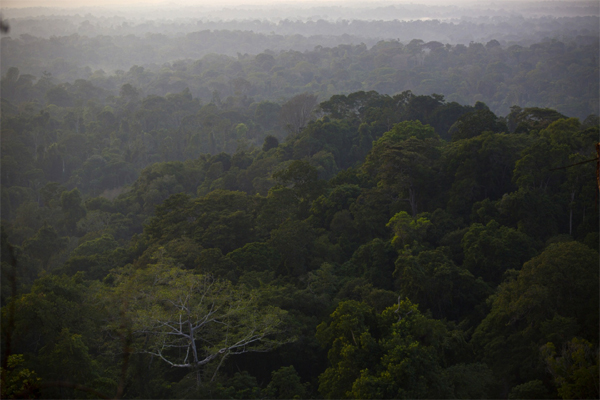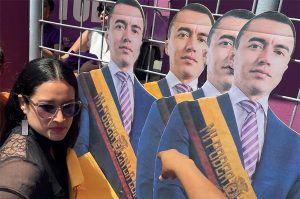- BlueBay, which heads anti-deforestation coalition, backs SLB
- Incoming President Lula has committed to preserving rainforest

Greg Ritchie, Bloomberg News
LONDON
EnergiesNet.com 12 21 2022
Brazil’s government could reassert its global climate credentials by selling a bond where the interest it pays creditors hinges on whether the country protects the Amazon rainforest.
That’s the proposal gaining momentum among bankers, investors and researchers, who say the nation should follow in the footsteps of Latin American peers Chile and Uruguay by issuing sustainability-linked debt. In Brazil’s case, the environmental target could be to reduce the area of Amazon deforestation, as verified by a third party.
Such a structure wouldn’t be without its challenges, not least for a country unfamiliar with ESG bonds and dealing with a broad market rout. But it would signal Luiz Inacio Lula da Silva, who takes office on Jan. 1, 2023, is serious about the nation’s fresh stance on biodiversity and climate change.
“It’s a fantastic idea,” said Graham Stock, senior emerging markets sovereign strategist at RBC BlueBay Asset Management and co-chair of the $10 trillion Investor Policy Dialogue on Deforestation, a coalition to engage with public agencies and industry associations on the issue. “It would be putting their money where their mouth is to say we’re going to commit and link our interest payments to it.”
While the concept is not new — the World Bank floated such a structure earlier this year — it’s one that appeared unlikely under outgoing President Jair Bolsonaro, whose environmental policies sparked international condemnation. In contrast, Lula has been hailed by environmentalists because of his promises to preserve the world’s largest tropical rainforest.
“A sustainability-linked bond designed to speed the delivery of President Lula’s zero deforestation goal would add real government skin in the game,” said Nick Robins, co-founder of research group Planet Tracker, which has pushed for the structure. It would confirm “Brazil is back with an innovative response to the urgency of the situation.”
Brazil has an outsized influence on the global environment given that more than 40% of the country is still covered in rainforest that’s home to some of the greatest biodiversity on the planet. The Amazon also stores enough carbon, which if fully released would be an estimated 730 billion metric tons of carbon dioxide equivalent, enough to account for 20 years of global emissions at current rates.

Even with a slight reduction in 2022, the Amazon deforestation surged to 11,400 square kilometers a year on average during Bolsonaro’s tenure, compared to 7,100 from 2015 to 2018. Those rates came down significantly during Lula’s two-term government between 2003 and 2010.
Sustainability-linked bonds — which typically see companies pay a higher coupon if they miss pre-determined environmental, social and governance goals — have mushroomed into a $200 billion market, but governments have been slower to adopt the format. Some market practitioners say sovereign borrowers should instead adopt step-down coupons, where the issuer pays less interest for meeting targets. Uruguay’s SLB debut meant its interest costs could both rise or fall depending on how it performs on its green objectives.
Alvaro Vivanco, head of emerging markets and ESG strategy at NatWest Markets, says Brazil’s SLB should commit it to ending deforestation by 2030. If the nation deviates from this pre-agreed trajectory, the coupon could be adjusted annually with a maximum change of two percentage points in either direction, he proposes.
“It’s simple, objective, measurable, and arguably one of the most direct ways to make a global impact,” he said. “A well-designed instrument would garner global interest from a wide cross section of investors.”
There’s plenty of challenges in store. Brazil has scaled back sales of global notes and has never issued a sovereign green or social bond. Although the nation’s Treasury reached out to countries with experience in issuing such debt and the World Bank to discuss the idea, no firm plans have been set. As of last month, officials were working to identify programs that could be financed through such bonds, the Treasury said in a written response to questions.
There’s also a broader challenge of how to evaluate whether the targets are ambitious enough amid greenwashing concerns. René Lichtschlag, an emerging markets fixed-income portfolio manager at Union Investment, notes that Uruguay’s debut earlier this year had a goal to extend the country’s forest area to 2012 levels by 2025, but it wasn’t clear what’s the current size of that area.
“It would be important to ensure a strong governance framework, and to set targets and baseline that ensure additionality to existing efforts to reduce deforestation,” said Jan Erik Saugestad, chief executive of Norway’s Storebrand Asset Management, which is the other co-chair of the IPDD. “Social safeguards such as respect for Indigenous Peoples’ rights should also be included.”
Deforestation came up repeatedly at last month’s COP27 international climate summit, where Lula made his first international speech since being elected in October. BlueBay’s Stock says he hasn’t lobbied for an SLB for the Amazon yet, but intends to do so once the new administration comes to power and there is clarity over its policies.
“Future administrations might not be fully aligned with the environmental policies of the previous one,” said NatWest’s Vivanco. “But at least there is a reward or punishment for turning against them.”
–With assistance from Martha Beck.
bloomberg.com 12 20 2022










